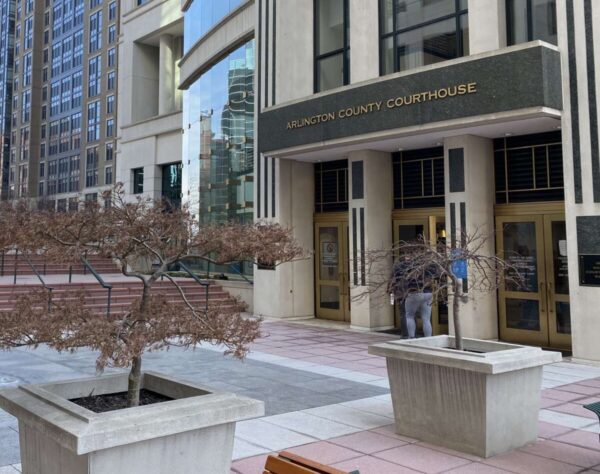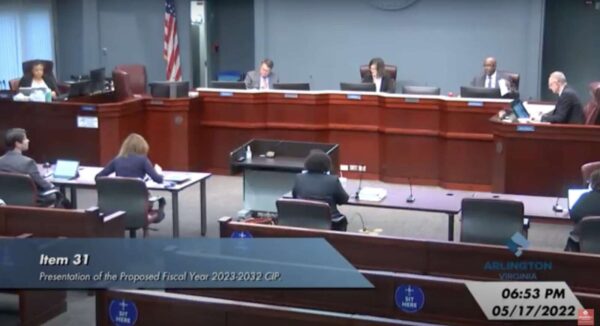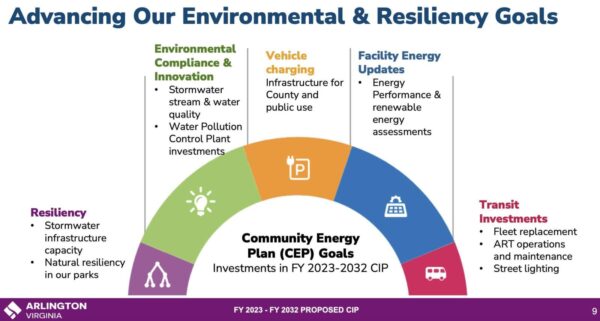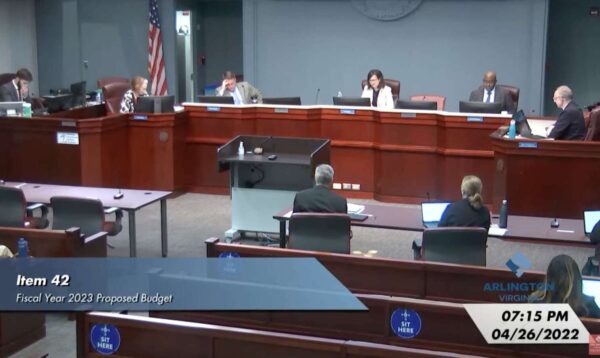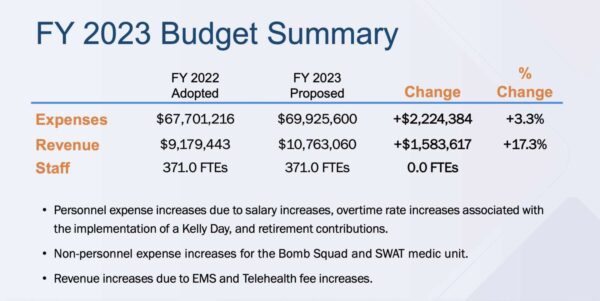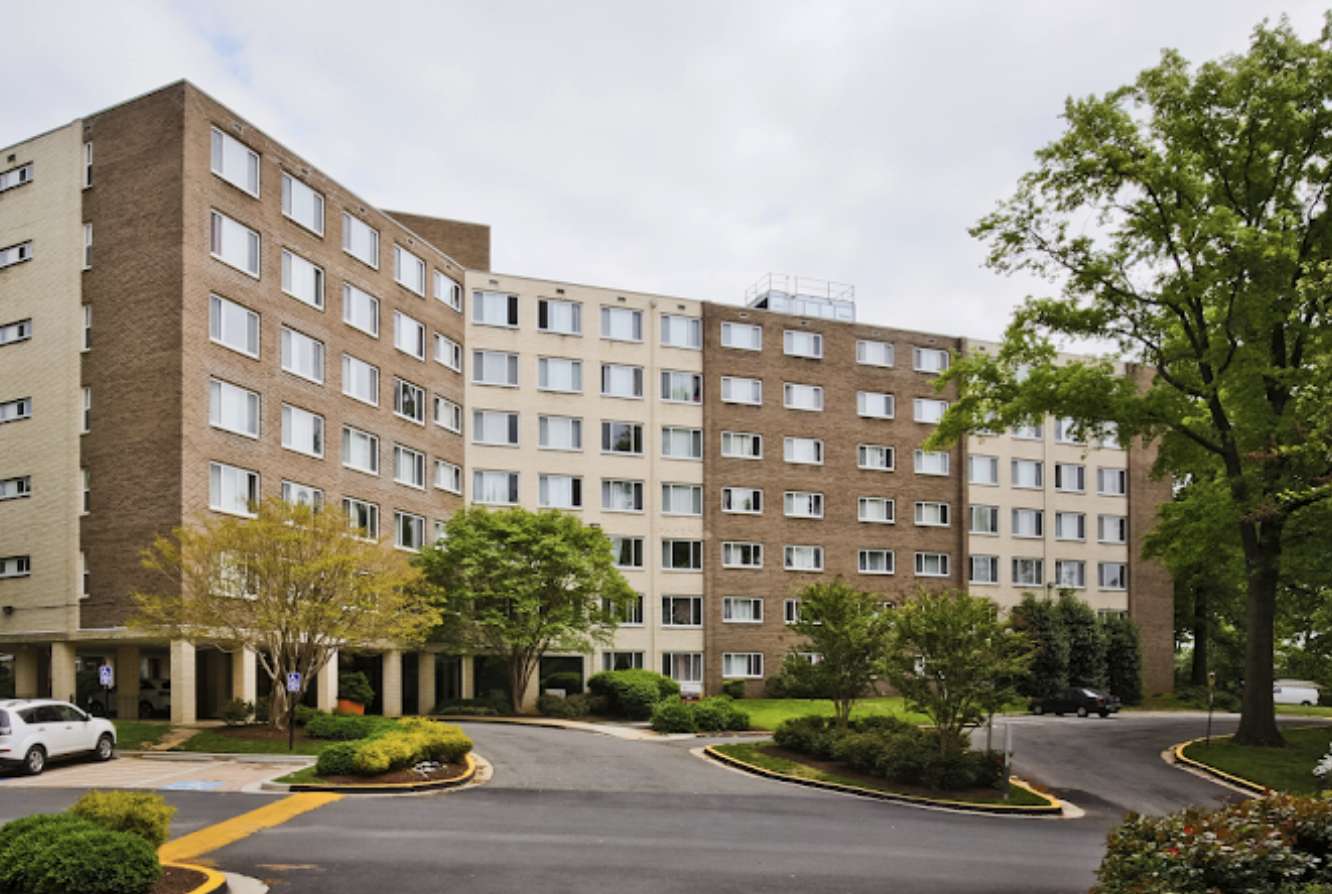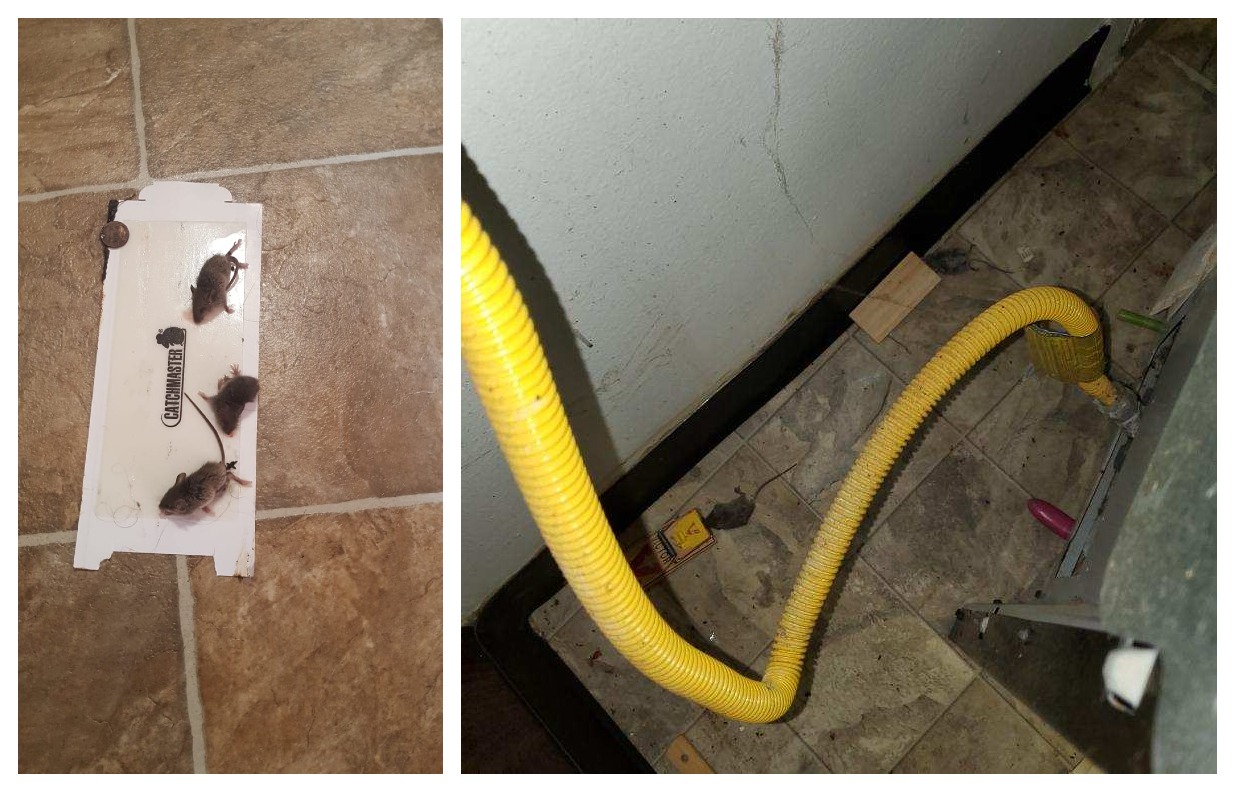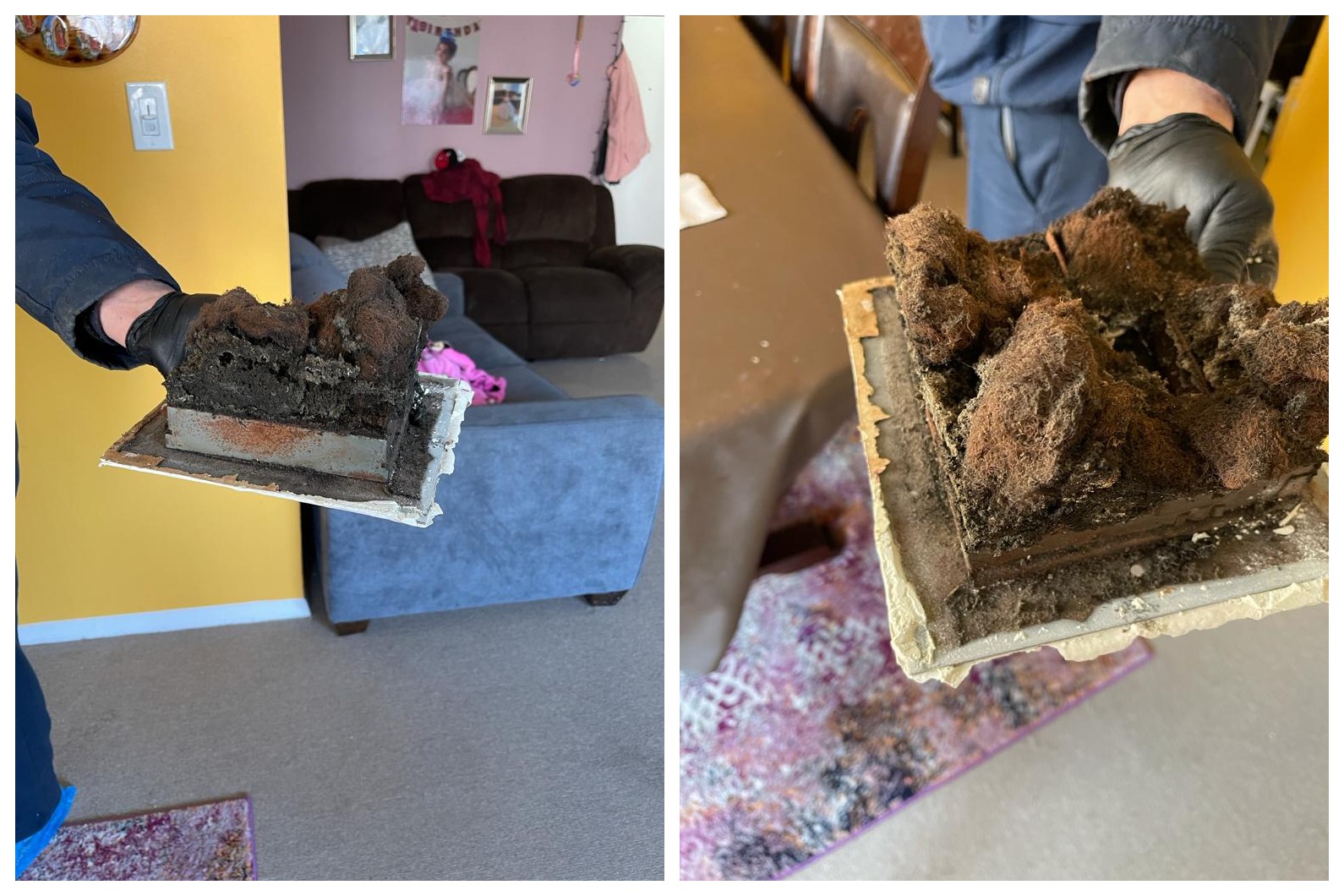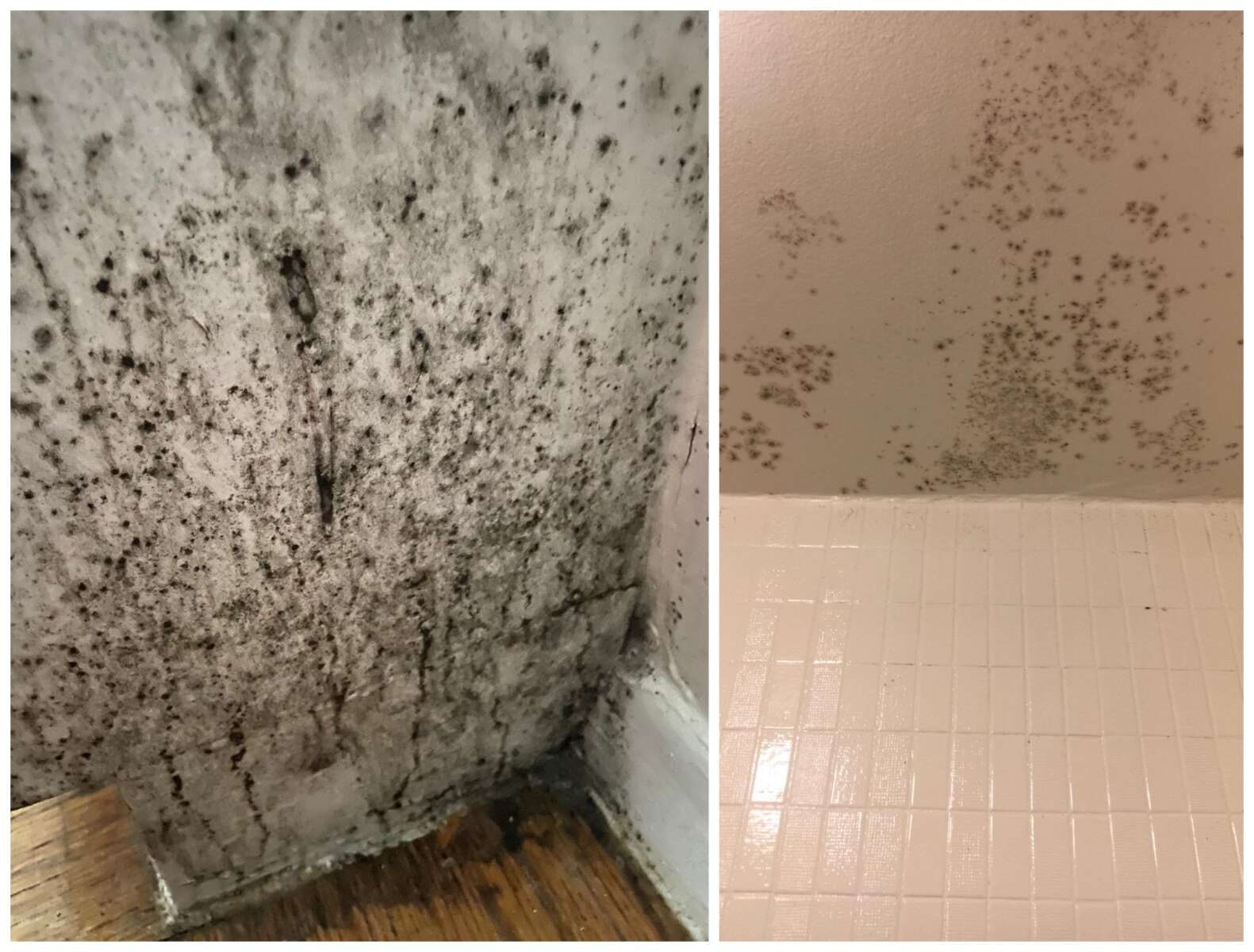
Predicting a potential $35-million deficit in the 2023-24 fiscal year, Arlington County Manager Mark Schwartz recommends putting nearly all of the unspent funds from last fiscal year toward balancing that budget.
Yesterday (Tuesday), the Arlington County Board approved the close of the 2021-22 budget with nearly $26.9 million in unspent, unencumbered “closeout” funds leftover. In the same meeting, county staff briefed the Board on its grim predictions for the 2023-24 budget, planning for which is already underway.
The county attributes the $26.9 million surplus to a better-than-projected tax year and fewer expenses than anticipated.
“This was primarily the result of a slowdown in departmental operations due to COVID coupled with retention and staff hiring challenges,” per a county report. “In addition, Countywide health care costs were less than anticipated.”
The 2022 closeout funds represent 2.4% of the county budget (excluding Arlington Public Schools expenditures) and mark an increase from last year, when the county ended the 2021 fiscal year with $20.4 million — or 2.2% of the budget — leftover.
Those closeout funds, coupled with federal funding, went to pandemic recovery, childcare, criminal justice reform and other equity initiatives. But now, Schwartz says the county needs the 2022 closeout funds for balancing the budget.
“Given the pressures that we’re facing in fiscal year ’24… my recommendation is that the discretionary balance of [$26.9] million that is available in closeout be set aside so that the board can consider it for potential use as part of the fiscal ’24 budget process,” Schwartz said on Tuesday afternoon during an Arlington County Board meeting.
Arlington County Budget Director Richard Stephenson said the projections are not uniformly bad news.
“It’s a good news, and not-so-good news, story,” he said. “County revenue that we’re projecting for 2024 is positive. Unfortunately, as we’re looking ahead, the expenditure side of the equation is going to outpace the revenue growth we’re projecting.”
Total tax growth is projected to be up 3.4% before sharing revenue with Arlington Public Schools. That is driven by increases in real estate assessments as well as taxes on personal property, Business, Professional and Occupational Licenses, sales and meals.
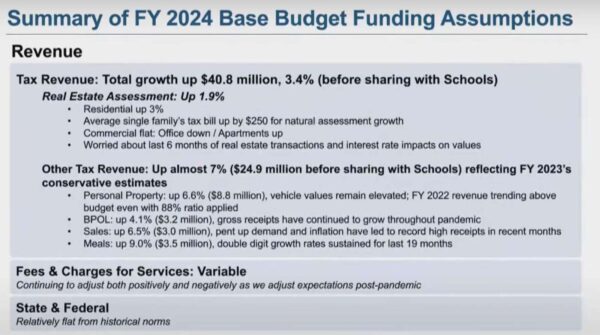
Another bright spot, Stephenson said, is that sales and meals taxes have not only bounced back from the pandemic, but they have also surpassed pre-pandemic levels. He said the county expects the hotel tax will eventually catch up, too.
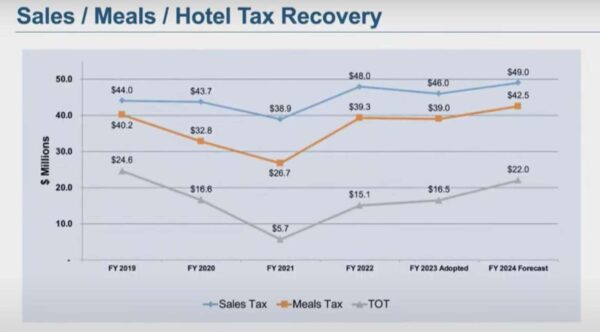
Still, Stephenson said, said the county has a number of “self-evident” concerns at the start of budget planning for the 2023-24 budget: inflation and wage growth, the transition from one-time federal funding — from sources such as the American Rescue Plan — to ongoing local funding for some projects, and the impact of interest rates.
Climbing interest rates and office vacancy rates, however, are threatening a “significant portion” of Arlington’s General Fund budget, or revenue from commercial real estate tax, Stephenson says.
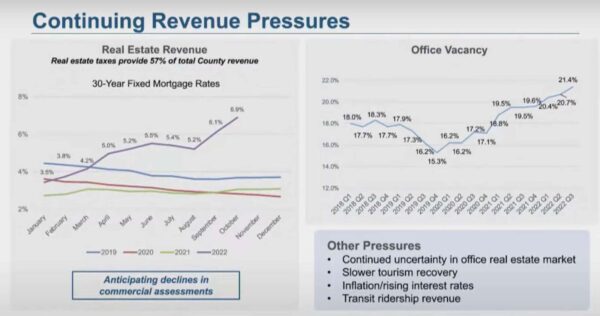
Arlington County Board Chair Katie Cristol said this information “gives a good bit of context” to Schwartz’s recommendation to lean on unspent, unencumbered “closeout” funds next year.
“For my part, I do think this is an easy decision to carry the fiscal ’22 closeout to fiscal ’24, and that may be the last time the term ‘easy decision’ is used in the same sentence as ‘fiscal ’24 budget,'” she said.


